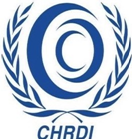
CAMPAIGN FOR HUMAN RIGHTS AND DEVELOPMENT INTERNATIONAL
93E Wilkinson Road Freetown, churchyard,
tele+23272000030, 23233906057, Email chrdiqfficiql@qmailcom. www.chrdi.org
CHRDI is in Special Consultative Status with the United Nations Economic and Social Council (ECOSOC)
Immediate Release: Press Statement on the Suspension of a Supreme Court Judge
FOR IMMEDAIATE RELEASE
CHRDI, Freetown, 18 Sep. 25.
The suspension of a Supreme Court judge is a significant development that warrants careful consideration and scrutiny. We understand the gravity of such actions and their potential implications for judicial independence and the rule of law.
We at CHRDI have noted the suspension of A.B. Halloway (JSC), a sitting Supreme Court judge.
This suspension came after Justice Halloway raised serious issues concerning human rights violations, abuse of office, maladministration within the judiciary, and the Chief Justice’s lack of respect for the rule of law.
In his three letters, the Supreme Court judge raised concerns about the Chief Justice’s grave violation of his rights and abuse of power. Instead, we only saw a letter and order confirming his suspension and that he has been under investigation.
What’s the status of his complaints? These are concerns complaints that the government has not given the public any possible update on.
We, at CHRDI believe Justice Halloway’s suspension is unjust and blatantly disregards his fundamental rights and dignity. In one of his three letters, Justice Halloway requested that the Ethics Committee be established to investigate the Chief Justice’s conduct. Still, the Judiciary has not acknowledged or acted upon this request.
Public officials at all levels must exercise the powers granted to them in good faith, reasonably, and only for the intended purposes, without exceeding the limits of their authority or acting unreasonably. The law should provide adequate protection for fundamental human rights.
The role of administrative law is to hold the government accountable. Human rights and fundamental freedoms establish crucial standards to protect these rights when an overreaching or underperforming government institution, like the judiciary, threatens them. While criminal law initially protects human rights against individual violations, administrative law is designed to defend these rights against larger, systematic violations in the name of public interest and the state.
Every individual has the right to address their grievances before an impartial tribunal, as stated in the International Covenant on Civil and Political Rights (ICCPR) and Sierra Leone’s legal framework.
Suspending someone for any possible alleged misconduct without addressing their grievances is unjust and undermines procedural integrity. We urge the Government of Sierra Leone to revoke the unjust suspension under section 137(6) of the Constitution.
We at CHRDI strongly urge the government to reconsider Justice Halloway’s suspension, investigate his complaints and
concerns against the Chief Justice’s Office, and uphold the Constitution and laws of Sierra Leone to ensure justice and fairness for all.
The rule of law requires the state to comply with its obligations in international and national law. The integrity and independence of the judiciary are foundational to justice systems worldwide. Any disciplinary action against judges must adhere to principles of fairness, transparency, and respect for judicial autonomy.
The complaints made by one of the country’s Supreme Court judges against the Chief Justice cannot and should not be overlooked. Section 137 (8) of the 1991 Constitution requires that any allegations concerning a Chief Justice’s conduct be thoroughly investigated, just as those against any other superior court judge. This approach ensures transparency and accountability within the judiciary.
The United Nations has expressed concern over suspensions and disciplinary proceedings against judges in various contexts, emphasising adherence to fair procedures and protection of judicial independence, as seen in cases like the Maldives, where UN experts voiced alarm over actions against the Supreme Court.